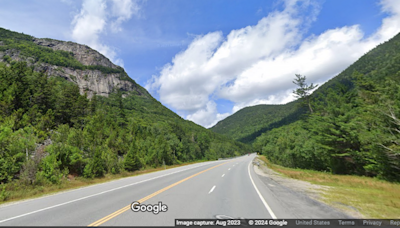Search results
People also ask
What is the University of Cambridge known for?
Why was Cambridge called Cambridge?
Where is Cambridge in England?
What is the history of the University of Cambridge?
Sep 24, 2015 · Why is it called Cambridge? Is there an individually-significant Cam bridge? Cambridge was founded around the area of Castle Mount and built-up due to its convenience as a port, soon becoming head of the navigation of the River Granta.
- Friday 3 May 2024 | Cambridge, UK
cam .ac .uk. The University of Cambridge is a public collegiate research university in Cambridge, England. Founded in 1209, the University of Cambridge is the world's third-oldest university in continuous operation.
- 24,450 (2020)
- Cambridge, England
- University town, 617 hectares (1,520 acres)
- Latin: Hinc lucem et pocula sacra
Cambridge ( / ˈkeɪmbrɪdʒ /, [4] KAYM-brij) is a city and non-metropolitan district in the county of Cambridgeshire, England. It is the county town of Cambridgeshire and is located on the River Cam, 55 miles (89 km) north of London. As of the 2021 United Kingdom census, the population of the City of Cambridge was 145,700; [5] the population ...
The University of Cambridge is one of the world's oldest universities and leading academic centres, and a self-governed community of scholars. Established in 1209, the University is rich in history.
Year YearEvent EventYear 1209Event Groups of scholars congregate at ...Year 1284Event Peterhouse, the first College at ...Year 1347Event Mary, Countess of Pembroke, founds ...Year 1446Event Henry VI, founder of Eton and of ...- Saxon Cambridge
- Medieval Cambridge
- Cambridge in The 16th Century and 17th Century
- Cambridge in The 18th Century
- Cambridge in The 19th Century
- Cambridge in The 20th Century
In the Bronze Age and the Iron Age, there were settlements on the site of Cambridge. Then in the 1st century AD, the Romans built a fort on Castle Hill. However, this fort was abandoned at the beginning of the 5th century AD as the Roman Empire declined. The modern city of Cambridge was founded in 875 when the Danes conquered Eastern England. They ...
In 1068 William the Conqueror visited Cambridge and ordered that a castle be built there. At first, it was of wood but in the 12th century, it was rebuilt in stone. The town of Cambridge was severely damaged by a fire in 1174. (Fire was a constant hazard when most buildings were of wood with thatched roofs). Another fire raged in Cambridge in 1385....
In 1538 Henry VIII closed the friaries in Cambridge. From 1575 the streets of Cambridge were cleaned. (Before they would have been full of dung and all kinds of rotting organic matter). From 1610 a conduit bought water from Vicar’s Brook into the town. Like all towns at that time, Cambridge suffered from outbreaks of the plague. There was a severe ...
In 1728 it was estimated that the population of Cambridge was 6,179. (There were also 1,599 inhabitants of the university). By the standards of the time, Cambridge was a fair-sized town. Cambridge continued to develop during the 18th century. The first newspaper in Cambridge appeared in 1744. Shire Hall was built in 1747 and a new Guildhall was bui...
In 1801 the population of Cambridge was 10,087. It was a large and prosperous town. In the early 19th century goods were still transported to and from Cambridge by the river. Coal was brought to Cambridge and agricultural goods such as grain and butter were taken to Kings Lynn to be transported to London. The railway reached Cambridge in 1845. It s...
In the 20th century the university, while still important, did not dominate Cambridge in the way it did in earlier centuries. New industries grew up such as electronics. Making surgical and scientific instruments was also important. In the 1980s a new business park was created in Cambridge. In 1901 the population of Cambridge was 38,379 and it grew...
4 days ago · University of Cambridge, English autonomous institution of higher learning at Cambridge, Cambridgeshire, England, on the River Cam 50 miles (80 km) north of London. It is among the most prestigious universities in the world and counts among its notable scholars Charles Darwin, J.J. Thomson, and John Maynard Keynes.
The University of Cambridge and equally renowned University of Oxford are often jointly referred to by the portmanteau term "Oxbridge," and maintain a long history of academic and athletic rivalry although there are also many links and much cooperation.


